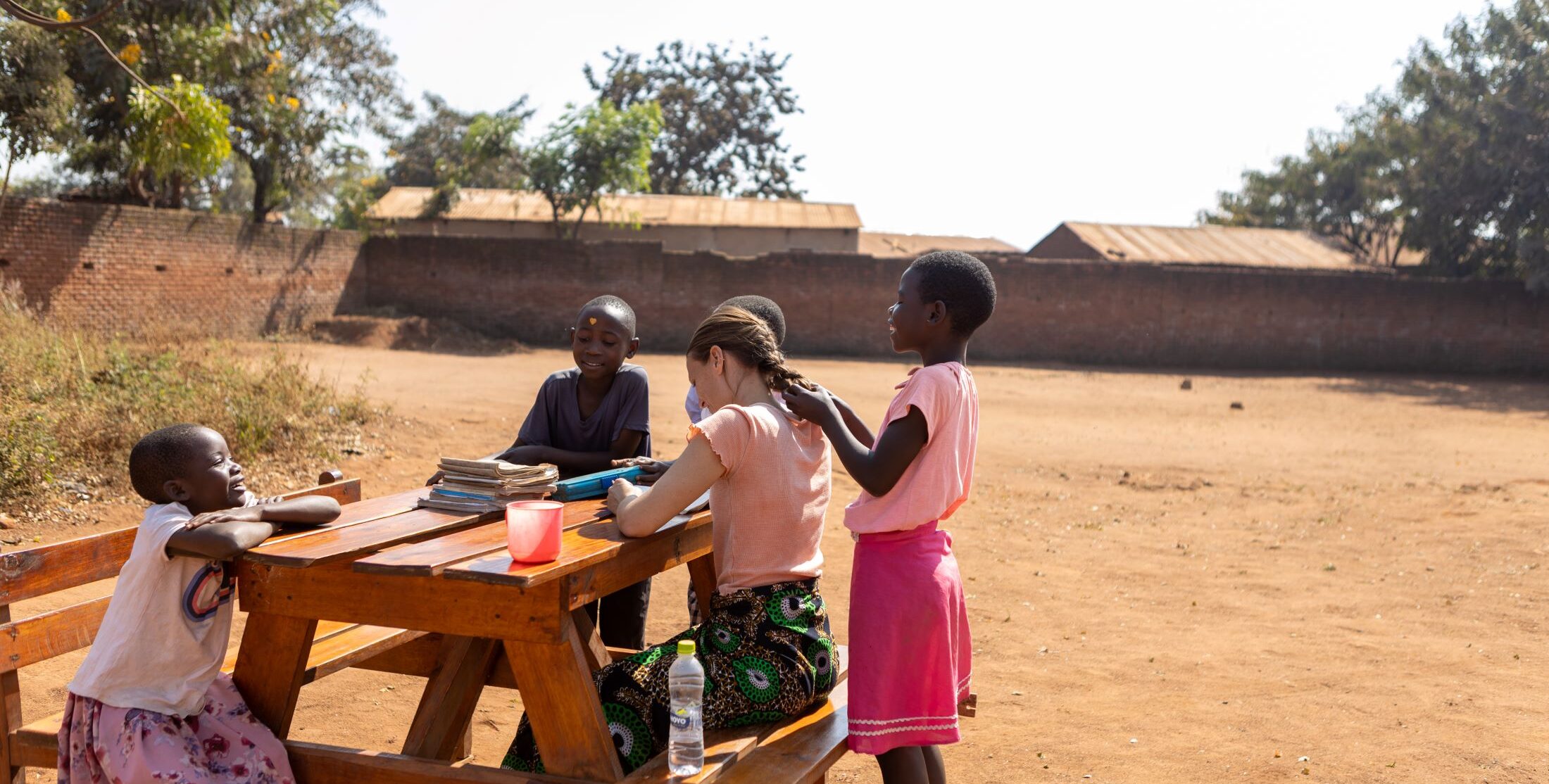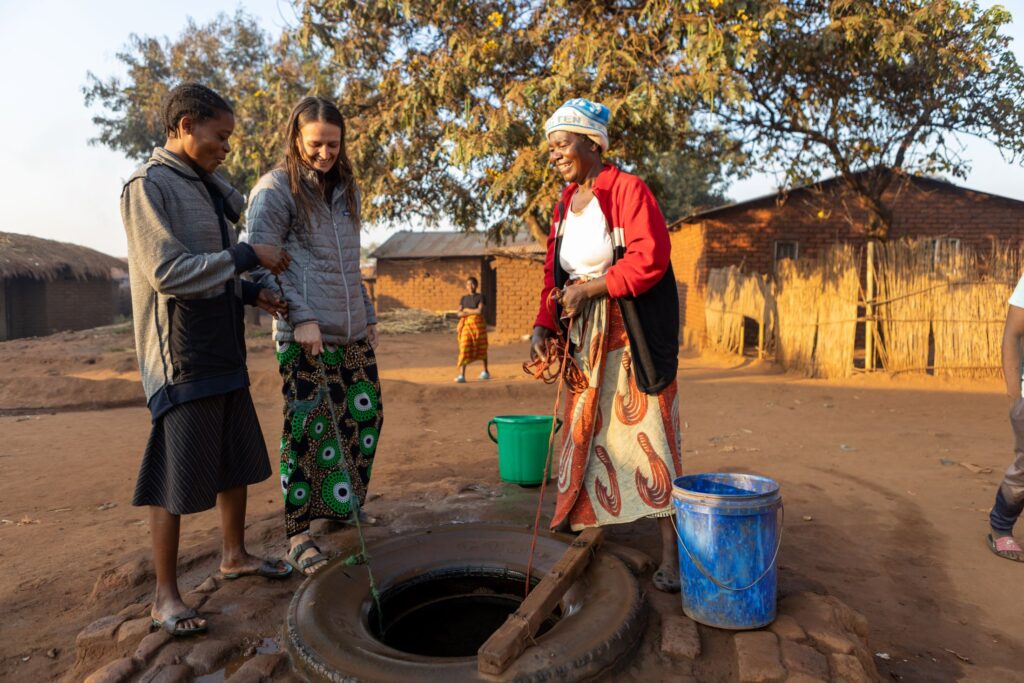Grace of God
Collett began teaching English at Dzaleka in 2015. While the organization wasn’t the best fit, Collett fell in love with the Malawian culture. Her two-year visa came and went quickly, and as its expiration date approached, Collett knew she wasn’t ready to say goodbye to the “Warm Heart of Africa.”
“I didn’t want to go back to the States,” said Collett. “I didn’t feel a sense of closure here.”
Collett’s coworker, Shupi Tatenda, knew Collett was looking for a reason to return. So before Collett departed for the States, Shupi and her husband, Titu, invited Collett to visit Grace of God Orphanage in Mtsiliza Village, a faith-based organization the couple launched in 2012.
At the time, the government enforced that orphanages send children to live with their living relatives. This meant the orphanage had to restructure to provide education and healthcare for these children in vulnerable circumstances. Shupi and Titu described their vision to relieve the burden for kids living with stepparents, a situation that often turns abusive. They would fund the children’s public education, provide supplemental English and Bible curriculum and ensure they had clothes to keep warm in the winter months.
The couple asked Collett to return and help develop the new education framework. “I knew that it would be something I would really enjoy — both working with Titu and Shupi and being a part of that team — but also developing an educational system for the children’s benefit,” said Collett.
After a hard year of reverse culture shock in the States waiting for another visa, Collett eagerly returned to Malawi.
Within two weeks, she began taking Chichewa lessons. She quickly realized during her first two years in Malawi that she wouldn’t be able to form genuine friendships, understand the culture and be seen as one of them if she didn’t know the language. Sure, she could teach others her heart language — but she couldn’t meet others in theirs. So Collett prioritized this in her second term.
Now fluent in the language, Collett serves as the school’s education coordinator, which means she oversees the teachers, the curriculum and the fundraising for the school of 50+ children. Collett relies heavily on the support of those at her home church in North Manchester, Indiana, to keep developing the school and securing sponsors for the children.
Despite the teachers’ efforts, Collett says children still fall through the cracks of the education system. “It happens,” said Collett. “You can’t force someone to want school, especially when their surroundings go against it.”






